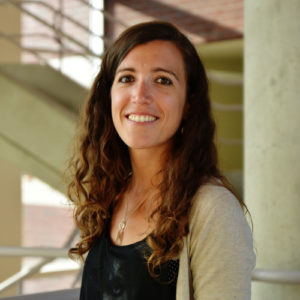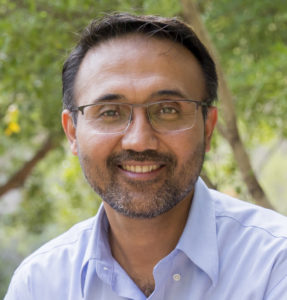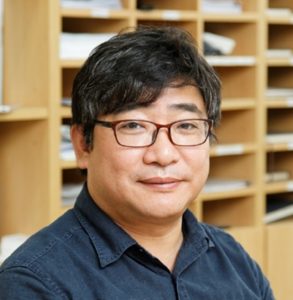Biomaterials Science and companion journal Journal of Materials Chemistry B are pleased to announce an open call for submissions to a cross-journal themed collection on ‘Microneedles’.
This cross-journal themed collection on ‘Microneedles’ aims to bring together recent advancements in the field of microneedles that readers will find informative and useful. The topics could include microneedle fabrication and development approaches, applications of microneedles that add a new dimension to existing core knowledge in the microneedles field, sensing applications and clinical studies that evaluate efficacy or other aspects of microneedle use in humans.
The Guest Editors for this themed collection are: Ester Caffarel-Salvador, Ryan Donnelly, Harvinder Gill and Hyungil Jung
Find out more about the Guest Editors below:
|
Dr Ester Caffarel-Salvador |
‘Microneedles are no longer confined to transdermal drug delivery, they are also being used to deliver drugs to organs such as the eye and the gastrointestinal tract as well as for drug monitoring applications. I am particularly excited to see how microneedles are being employed in novel devices to help overcome the challenges of oral delivery of biologics.’ |
Dr. Ester Caffarel-Salvador is a multidisciplinary scientist with a background in biotechnology and biochemistry. At MIT, she developed a pill to administer insulin orally, now in clinical trials, which led the MIT Technology Review to recognize her as one of the 35 Innovators Under 35 in 2019.
After taking a mini-MBA at Harvard and working across startups, VCs, consulting, and pharmaceutical companies, Ester is now the Associate Director of Strategic Innovation for Rare Diseases at Chiesi USA. She is also a lecturer at MIT and an advisor to several startups. Ester speaks seven languages and is passionate about advocating on career development for women in science.
|
Prof. Ryan Donnelly |
‘Why microneedles? Microneedles are one of the fastest growing areas of innovation in drug and vaccine delivery today. They offer the possibility of needle-free delivery of currently injectable medicines that could help overcome the COVID-induced backlog in healthcare provision globally. In developing countries needle-free vaccine administration would improve access to safe and effective vaccines for millions of people.’ |
Professor Ryan Donnelly holds the Chair in Pharmaceutical Technology at Queen’s University Belfast and is Director of QUB’s interdisciplinary research programme Materials & Advanced Technologies for Healthcare (MATCH). His personal research is centred on design and physicochemical characterisation of advanced polymeric drug delivery systems for transdermal and intradermal drug delivery, with a strong emphasis on improving patient outcomes. He is currently developing a range of novel microneedle technologies through independent research, but also in collaboration with several major pharma partners. He has obtained substantial UK Research Council, charity and industrial funding and authored over 600 peer-reviewed publications (H-index = 73), including 6 patent applications, 6 textbooks, 23 book chapters and approximately 300 full papers. He has been an invited speaker at numerous national and international conferences. Professor Donnelly is Europe/Africa Editor of Drug Delivery & Translational Research and the Controlled Release Society’s Communications Chair. He has won the Academy of Pharmaceutical Science’s Innovative Science Award (2020), the Controlled Release Society’s Young Investigator Award (2016), BBSRC Innovator of the Year and the American Association of Pharmaceutical Scientists Pharmaceutical Research Meritorious Manuscript Award (2013 and 2022), the GSK Emerging Scientist Award (2012) and the Royal Pharmaceutical Society’s Science Award (2011).
|
Prof. Harvinder Gill |
‘The first microneedle paper was published in 1998. I am thrilled at this opportunity to co-edit a joint themed edition for Journal of Materials Chemistry B and Biomaterials Science to showcase the achievements that have been made in the field over the past nearly 25 years. By pairing these two journals for the themed edition, we have a unique opportunity of highlighting both the materials and manufacturing aspects, and the biological applications aspects of microneedles. I look forward to reading the outstanding work in the field from colleagues around the world.’ |
Dr. Gill is a Professor of Chemical Engineering at Texas Tech University, Lubbock, TX, USA. His research interests are in the fields of immunoengineering and micro-nano medicine. He has expertise in delivery systems such as microneedles, pollen grains, polymeric micro-nano particles, and gold nanoparticles. He has a history of innovativeness, and of providing fresh and unique perspectives to research and medical problems. Dr. Gill is working towards the development of a universal influenza vaccine using nanoparticle systems to enhance vaccine efficacy. He is amongst the pioneers of microneedle technology and has produced seminal work in the field. He was also the first to propose use of pollen grains as “Trojan horses” for oral vaccination and has published original and seminal papers in this field, which has attracted other researchers. He is also the pioneer of the use of microneedles for allergen immunotherapy and his lab is currently developing microneedles for the treatment of airway and peanut allergen immunotherapies. This technology is being commercialized through a startup company called Moonlight Therapeutics, which Dr. Gill has co-founded.
Dr. Gill completed his Bachelor of Engineering in Chemical Engineering with honors and a gold medal from Panjab University, India (1994). After graduation, he worked in the petroleum industry for seven years. Subsequently he obtained his doctoral degree in Bioengineering from Georgia Institute of Technology (2007). Dr. Gill received his postdoctoral training in the field of influenza vaccines at Emory University (2009). Dr. Gill has received numerous awards and honors, including the prestigious NIH Director’s New Innovator Award (DP2 award) and Defense Advanced Research Projects Agency (DARPA) Young Faculty Award for his pollen research, Chancellor’s Council Distinguished Research Award, Barney E. Rushing, Jr. Faculty Distinguished Research Award STEM, Ed and Linda Whitaker Faculty Fellow Award, and Whitacre Engineering Research Award. For his accomplishments and contributions to Biomedical Engineering, he was awarded the Whitacre Endowed Professorship in Science and Engineering at Texas Tech.
|
Prof. Hyungil Jung |
‘Microneedles are truly an exciting platform for next generation drug delivery’ |
Hyungil Jung is a Professor in the Department of Biotechnology at Yonsei University, where he is also the Chair of the Bio & Living Engineering Major in Global Leaders College, as well as Director of the Institute of Bio-Medical Health Care Convergence and the Department Head of Integrative Biotechnology & Translational Medicine. He is also the founder and CSO of JUVIC Inc., a company developing microneedle-based products. He received his B.S. and M.S. from Yonsei University in 1993 and 1995, and his Ph.D. from Cornell University in 2002. He worked at Caltech as a Postdoctoral scholar from 2002 through 2004 and then joined Yonsei University at 2004. His main interests lie in commercialization of microneedles and overcoming the pressing challenges in microneedle development for commercialization. During his spare time, his hobby is indulging in board games, his favorite being Baduk, a widely popular traditional board game in Korea.
Submissions for this themed collection are open until 1 March 2023
The call for papers is open for the following article types:
- Communications
- Full papers
- Reviews
- Perspectives
If you would like to submit to this themed collection, you can submit your article directly to the online submission platform for Journal of Materials Chemistry B or Biomaterials Science. Please mention that this submission is a contribution to the Microneedles collection in the “Themed issues” section of the submission form and add a “Note to the Editor” that this is from the Open Call. The Editorial Office reserves the right to check suitability of submissions in relation to the scope of both the journal and the collection, and inclusion of accepted articles in the final themed issue is not guaranteed.
Please note that all submissions will be subject to initial assessment by the journal editors and as such we cannot guarantee peer review or final acceptance of your manuscript. If you have any questions about the collection, email us at materialsb-rsc@rsc.org. We look forward to receiving and featuring your submissions in this exciting collection!














